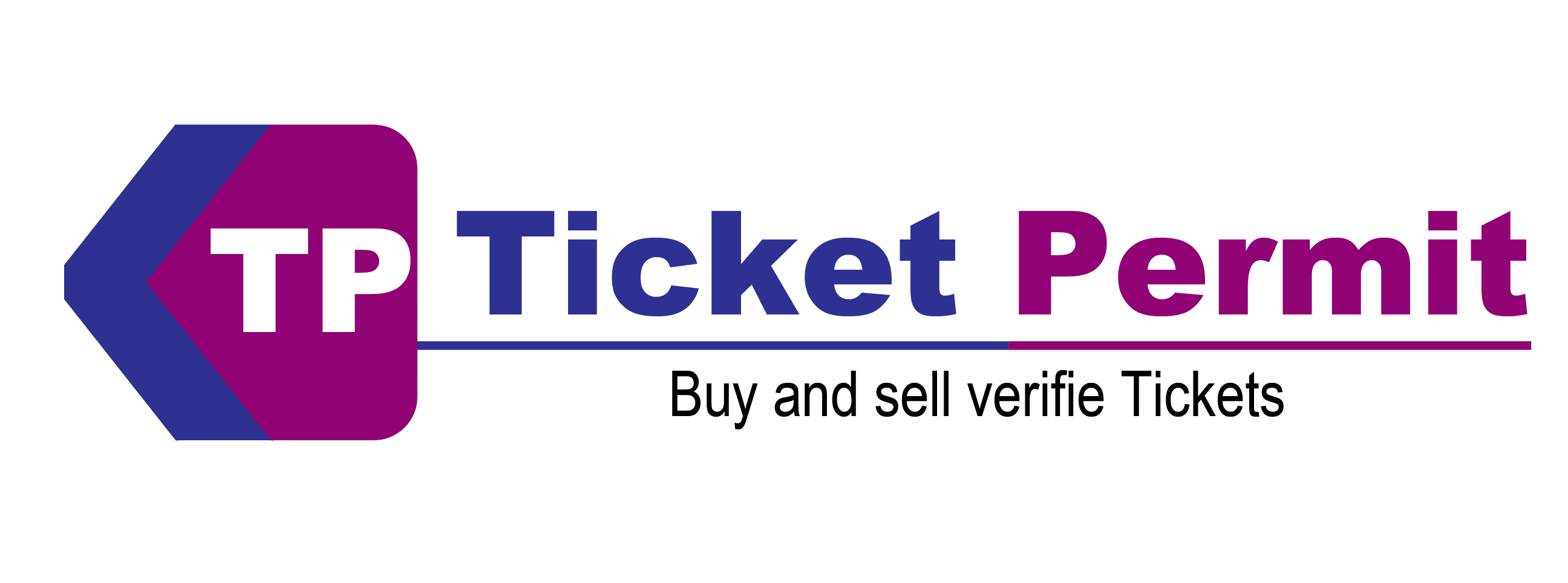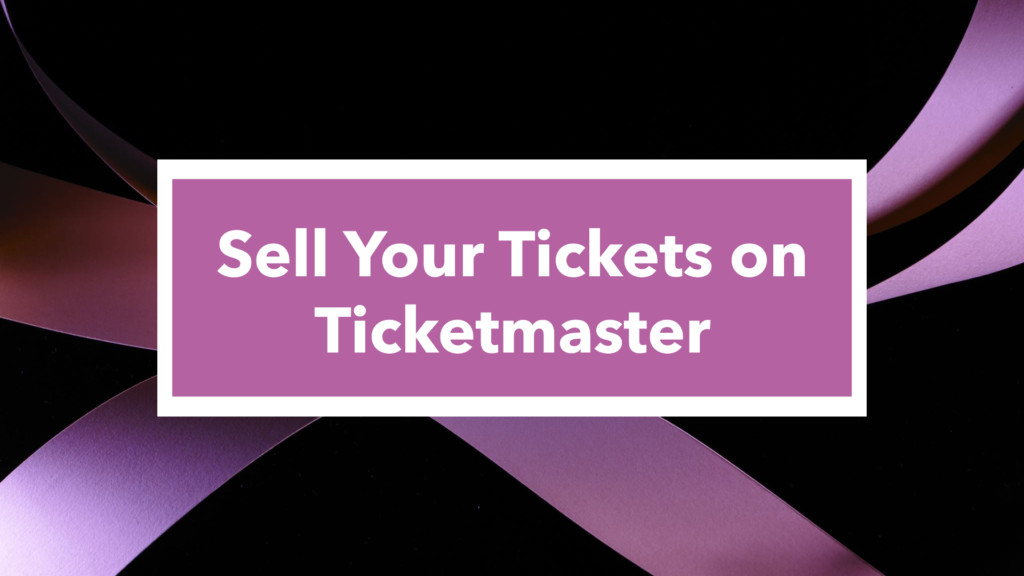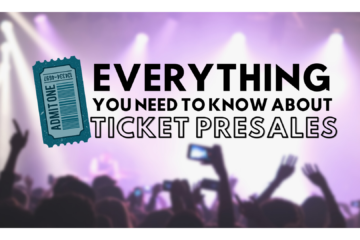Have you ever bought concert tickets only to find plans change? Or maybe you snagged an extra ticket you don’t need. Whatever the reason, Ticketmaster provides a safe and convenient platform to resell your unwanted tickets. This guide on how to sell tickets on Ticketmaster will walk you through the entire process, answering all your questions about selling tickets on Ticketmaster.
Can You Resell Your Tickets on Ticketmaster?
Before we dive in, it’s crucial to understand that not all events allow resale on Ticketmaster. The event organizer ultimately decides whether fans can resell tickets. Here’s how to check if your tickets are eligible for how to resell tickets on Ticketmaster:
- Sign in to your Ticketmaster account.
- Navigate to “My Events” or “My Tickets” and locate the specific event.
- Look for a “Sell” button next to the event details. If it’s missing or grayed out, reselling isn’t permitted.
How Can I Sell My Concert Tickets on Ticketmaster?
Once you’ve confirmed resale is allowed, here’s how to list your tickets:
- Sign in to your Ticketmaster account. This is essential for accessing your tickets and managing the selling process.
- Locate your tickets. Navigate to “My Events” or “My Tickets” and find the event you want to resell.
- Click the “Sell” button. This should be displayed next to the event details if resale is enabled.
- Select the tickets you want to sell. You might have multiple tickets for the same event. Choose the ones you’re looking to resell.
- Set your asking price. Ticketmaster offers some guidance on pricing based on current market trends. You can choose to list your tickets at face value, above face value (within certain limits), or below face value (useful if you want a quicker sale).
How to Sell Concert Tickets Online: Choosing the Right Price
Finding the sweet spot between maximizing your return and ensuring a quick sale is key. Here are some factors to consider when setting your price for how to sell concert tickets online:
- Face Value: This is the price you originally paid for the ticket. Listing slightly below face value can attract buyers looking for a deal, while going above can be risky.
- Demand for the Event: Consider the artist’s popularity, the venue’s capacity, and how close the event date is. Popular events with limited availability tend to fetch higher resale prices.
- Ticketmaster Fees: Remember, Ticketmaster charges fees to both buyers and sellers. Factor these fees into your asking price to ensure you get the desired net amount.
- Similar Listings: Check the resale marketplace on Ticketmaster to see what other sellers are asking for comparable tickets. This will give you a good idea of the current market value.
Selecting Your Payout Method
Once you’ve set your price, choose how you’d like to receive payment when your tickets sell. Here are your options:
- Direct Deposit: This is the preferred method, allowing funds to be electronically deposited into your bank account. However, you might need to verify your banking information before receiving your payout.
- Debit Card: This option skips the verification process and deposits the funds directly to your linked debit card. It’s a faster option but might not be suitable for larger payouts.
Reviewing and Finalizing Your Listing
Before your tickets go live on the marketplace, take a moment to review all the details:
- Event Details: Double-check the event name, date, time, and location for accuracy.
- Ticket Information: Ensure the correct number of tickets and seating sections are listed.
- Pricing: Verify your asking price reflects your intended amount after Ticketmaster fees.
- Payout Method: Confirm your chosen method for receiving payment.
Once everything is accurate, finalize your listing. Your tickets will now be visible to potential buyers on the Ticketmaster marketplace.
Managing Offers and Communication
Depending on the event’s popularity and demand, you might receive offers from potential buyers. Here’s how to handle them:
- Reviewing Offers: Ticketmaster may present offers from interested buyers. You can choose to accept the offer, decline it, or propose a counteroffer.
- Communication: While Ticketmaster facilitates the transaction, you won’t have direct communication with buyers. Any questions or concerns they have will be directed to Ticketmaster’s customer service.
Getting Paid After Your Tickets Sell
When your tickets sell, Ticketmaster will handle the transaction securely, making selling tickets through Ticketmaster a reliable option. Here’s what to expect:
- Transaction Confirmation: You’ll receive notification from Ticketmaster confirming the sale of your tickets.
- Payment Processing: Depending on your chosen payout method, it can take up to 17 business days to receive your funds after the event date.
Best Way to Sell Tickets from Ticketmaster
Here are some of the best ways to sell tickets from Ticketmaster:
- Be Realistic with Pricing: Don’t overprice your tickets. While maximizing your return is tempting, excessively high prices are unlikely to attract buyers and could lead to your tickets going unsold. Consider current market trends, event demand, and face value when setting your price.
- Act Quickly for Popular Events: If you’re reselling tickets for a highly anticipated event, time is of the essence. List your tickets as soon as possible to capitalize on the initial surge of buyer interest.
- Use Clear and Accurate Descriptions: When creating your listing, provide a clear and accurate description of your tickets. Include details like the section, row, and seat numbers. High-quality photos of the seating view (if available) can also be helpful in attracting buyers.
- Respond Promptly to Offers (if applicable): If you receive offers from potential buyers, respond promptly. A quick response demonstrates your seriousness as a seller and increases the chances of a successful transaction.
- Be Aware of Ticketmaster Fees: Factor in Ticketmaster’s fees for both sellers and buyers when setting your price. This ensures you receive the desired net amount after the sale is complete.
- Consider Alternative Platforms (if resale is disabled): If Ticketmaster doesn’t allow resale for a specific event, explore alternative platforms like StubHub or Cash for Seats. Remember to research these platforms’ fees and reputation before listing your tickets.
- Beware of Scams: Unfortunately, online ticket sales can attract scammers. Be wary of unsolicited offers or requests for personal information outside of Ticketmaster’s secure platform. Only communicate and conduct transactions through Ticketmaster to ensure your safety.
Additional Considerations
- Mobile App Convenience: Ticketmaster offers a mobile app that allows you to manage your listings and track the sale of your tickets conveniently.
- Delivery Options (for buyers): When you sell your tickets, buyers can choose between electronic transfer or physical delivery (subject to fees). This flexibility can broaden your buyer pool.
- Ticketmaster’s Guarantee: Ticketmaster offers a guarantee program for buyers, ensuring they receive valid tickets. This can give buyers peace of mind and potentially encourage them to purchase your tickets.
Conclusion
Selling unwanted tickets on Ticketmaster can be a safe and convenient way to recoup some of your investment. By following the steps outlined in this guide on how to sell concert tickets on Ticketmaster, setting a competitive price, and managing your listing effectively, you can increase your chances of a successful sale. Remember, always prioritize a smooth and secure transaction for both yourself and the buyer.
Frequently Asked Questions (FAQs)
- What if my tickets don’t sell?
Unfortunately, there’s no guarantee your tickets will sell. If your event date approaches and your tickets remain unsold, consider lowering your price to attract buyers.
- Can I cancel my listing once it’s live?
Yes, you can typically cancel your listing on Ticketmaster as long as your tickets haven’t sold.
- What happens if the event is canceled or postponed?
Ticketmaster will typically handle event cancellations or postponements. In such cases, you’ll receive a full refund for your original ticket purchase and any fees you paid as a seller.




